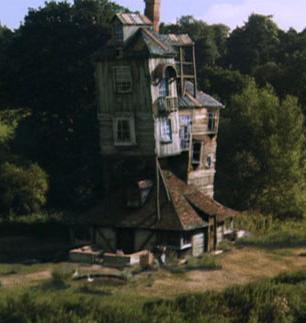
A book, I have come to believe, is rather like a house.
For the past six years I have been building a house of words from the ground up. I hammered every nail, placed every stone (at first I thought to write "brick" but the unique shapes of words, their roundness and roughness and varied colors make "stone" the better metaphor), and made every single design decision. Then I asked the advice of several friends and professionals. Their suggestions encouraged me to tear down and rebuild some stuff, rip out a wall or two, add some unusual landscaping and a distinctive path to the front door. These helped make my house better and stronger, more attractive, navigable, and liveable.
Then I found my wonderful agent, and she helped me see that I needed a fresh coat of paint and new carpets in order to give it that final spruce-up that would help it appeal to a certain kind of buyer. After that, we put this book-house on the market and showed it a few times. The buyers we approached were complimentary and appreciative, but still skittish. So we had a few more people look it over and give us ideas. We carefully picked and chose among those ideas and implemented the ones that seemed best.
But here's the thing: anyone who buys this house I've built is still going to want to paint it and change the carpets, even though we just did that. We did it to make it sell, but they will do it again to make it THEIRS. In all likelihood, I will have more changes to make that will come only after we make a sale. So I've come to realize that I need to save a little bit of passion and energy for that time or I'll never get through this crazy, lengthy process. And I also have to be careful not to tack on too many things that other people think might make it a better house.
Just because one potential buyer loves plants and another makes birdhouses as a hobby and another wants to entertain friends and still another likes lots of natural light doesn't mean that the buyer we find will want the house to come with an attached greenhouse and a bar in the basement and a woodworking studio and a whole bunch of skylights. If I start to add all of the different things to my house that could potentially make it appeal to a certain type of buyer, in the end no one will want it because it will have become a crazy hodge-podge.It will end up like The Burrow, Ron Weasley's family home. (No offense, Ron.)

So, anyway, that's the latest writing analogy I employ to help me sleep at night. I am a hard-working author, committed to making this book work, but at some point I have to step back and say DONE. I have to stop tinkering and wait for the buyer (who--surprise!--loves the house and wants to own it in the worst way) to tell me what finishing touches I need to add to make it a perfect fit.

